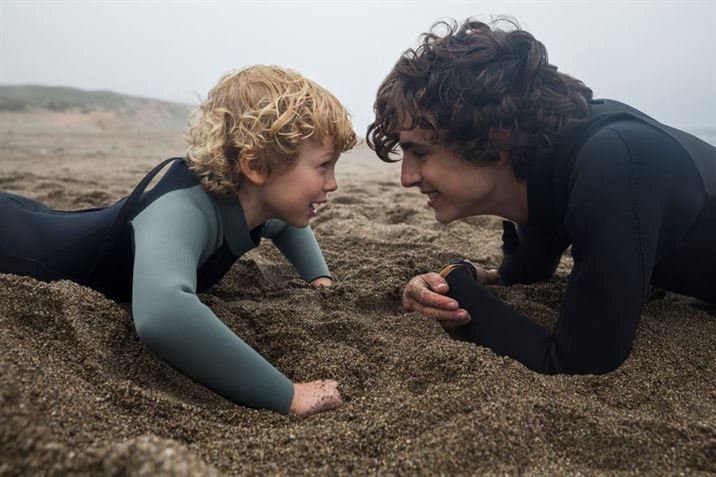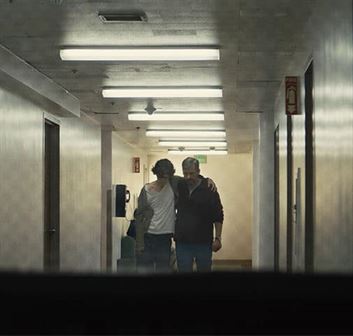Filled with heartwarming family moments and gut-wrenching acts of defiance, “Beautiful Boy” is the epitome of a tear-jerker and must-see.
“Beautiful Boy” juggles the tragic life of an addict and the emotionally battered relationship between a father and son. The film shifts its focus on the perspective of David Sheff, played by Steve Carell, and his constant questioning of his son Nic, played by Timothy Chalamet, who has reckless behavior.
While piecing together the intense aspects of Nic’s tragic downward spiral into drug addiction, “Beautiful Boy” displays the visual beauty of nature and human interaction. The film’s use of color and mood-altering music, including the on-the-nose reference to John Lennon’s song “Beautiful Boy,” leave viewers both on the edge of their seat and reaching for that tissue box.
The film is directed by Felix Van Groeningen and is based on both David Sheff’s memoir “Beautiful Boy: A Father’s Journey Through his Son’s Addiction” and Nic Sheff’s book “Tweak: Growing Up on Methamphetamines.”
The opening scene fixates on David Sheff, a San Francisco native and magazine writer, who asks a doctor why his son is addicted to drugs. The complexity of his question drives the action in the story and gives a brief insight into the distanced communication between David and Nic.
Van Groeningen and his cowriter Luke Davies employ the creative structure of routinely including flashbacks from Nic’s childhood and short time at college. The film depicts Nic’s innocence and child-like quirks while continuously showing the pattern in which he gets high, attempts to sober up and succumbs to relapse.
Through David’s lens, Nic is seen to have grown up to be a near perfect young boy, whereas Nic says he uses drugs to fill the black hole inside of him.
Although David is desperately trying to understand why Nic will not stop using drugs, which is evident in a scene where David snorts crystal meth himself, Nic is constantly justifying his actions with phrases like, “It takes the edge off of stupid all-day reality.”
Nic battles his inner demons by constantly chasing a high that subsequently leads him to crystal meth. The film’s take on a meth addict’s manipulative behavior adds a suspense that keeps viewers keen on finding out what is going to happen next. Figuring out whether or not Nic will tell the truth and whether or not David will be able to save him causes the plot to continuously crescendo.
The emotional backbone behind the film could not have worked without the dynamic between actors Carell and Chalamet. It is difficult to say who stole the spotlight when they both delivered outstandingly authentic performances.
Chalamet not only offers the ideally youthful look of Nic, but he also conveys a believable energy that makes you wonder how he stayed sane afterward. Carell parallels Chalamet’s performance by offering an equally true conviction of the many emotions David undergoes in the film.
The actors, however, had it easy due to the cinematic portrayal of the breathtaking California landscapes. Nic travels to Los Angeles to visit his mother where he goes on a scenic bike ride and other long car rides where he routinely sticks his head out the window for some of that fresh mountain air.

Christian Covert (left) and Timothee Chalamet (right) play brothers in “Beautiful Boy.” Photo courtesy of Amazon Studios
The use of dark and light tones vary, depending on Nic’s level of sobriety. The beams of sunlight and an array of natural hues make Nic appear the way that drugs make him feel: like a kid again. This gives viewers a close-up of David’s once beautiful boy.
“Beautiful Boy” is not a universally adored film. It is an intense yet moving close-up on the vicious toll that crystal meth can take on a person’s life. Whether or not a viewer has been affected by drug addiction, there is no doubt that this drama adequately pieces together a cinematic experience that will leave a mark.
It may be difficult for certain audiences to bare, but the film serves as an educational moment for viewers to become aware of the opioid crisis that is prevalent today. “Beautiful Boy” may not be loved by many but should be seen by all.



